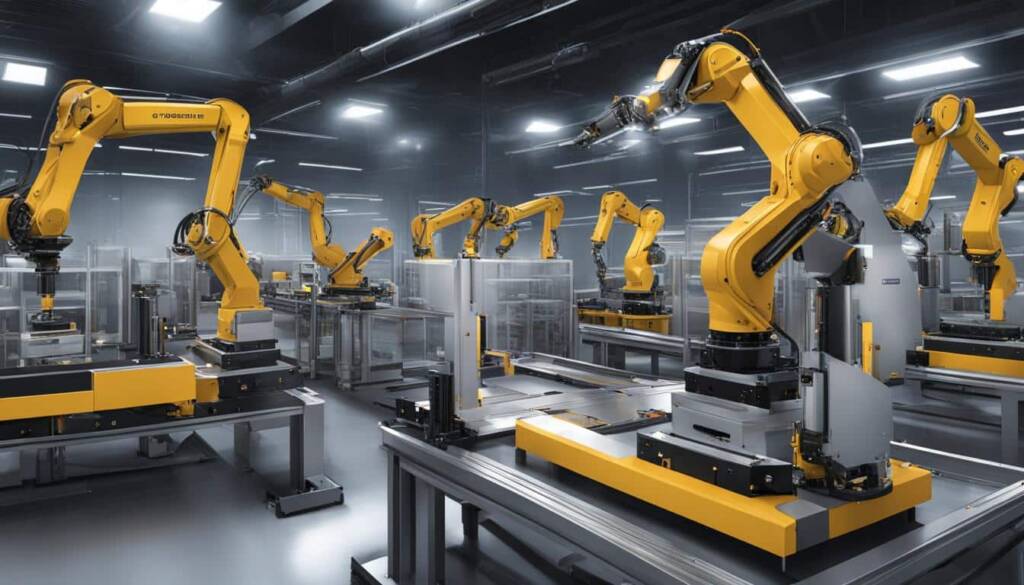Table of Contents
ServiceNow, a renowned platform, serves multiple business processes through its advanced capabilities in workflow automation. As businesses strive to enhance efficiency and productivity, manual workflows can often hinder progress, leading to errors and delays. Here, ServiceNow becomes the driving force, revolutionizing traditional workflows into efficient, automated processes.
Workflow automation encompasses the automation of tasks, processes, tools, and collaboration between individuals, all directed towards achieving specific business outcomes. By leveraging rule-based logic and cutting-edge digital technologies, ServiceNow and its workflow automation software enable businesses to streamline and automate critical tasks, approvals, and sequences.
With ServiceNow’s integrated solutions, businesses can establish a seamless connection between their various business processes, ultimately resulting in enhanced efficiency and productivity.
Advantages of Workflow Automation
Workflow automation offers several significant benefits for businesses. Firstly, increased efficiency is achieved by streamlining processes and automating tasks. By reducing the time it takes to complete workflows, employees can focus on more strategic activities and accomplish more with their time, leading to heightened productivity.
Automation also plays a crucial role in improved accountability within organizations. It creates a detailed record of the workflow’s status, eliminating confusion and finger-pointing. With a clear audit trail, businesses can easily track the progress and performance of their workflows, ensuring transparency and accountability throughout the process.
Furthermore, workflow automation significantly reduces the likelihood of errors. Machines are capable of providing consistent and accurate results, eliminating human error associated with manual processes. This not only saves time and resources but also ensures data integrity and improves the overall quality of work.
Additionally, implementing workflow automation contributes to an enhanced customer experience. By automating processes, businesses can deliver faster and more efficient services to their customers. This leads to improved satisfaction, loyalty, and an increased likelihood of repeat business.
Workflow automation leads to reduced errors, improved efficiency, heightened productivity, enhanced accountability, and an overall improved customer experience.
| Advantages of Workflow Automation | Description |
|---|---|
| Increased Efficiency | Streamlining processes and automating tasks result in reduced time to complete workflows |
| Heightened Productivity | Employees can focus on more strategic activities, accomplishing more with their time |
| Improved Accountability | Detailed record of workflow status, eliminating confusion and promoting transparency |
| Reduced Errors | Consistent and accurate results lead to a decrease in human errors |
| Enhanced Customer Experience | Automation enables faster and more efficient services, improving customer satisfaction |
Implementing Workflow Automation with ServiceNow
To implement workflow automation with ServiceNow, businesses can follow a few steps. Firstly, they need to identify a specific process that would benefit from automation. This could be a complex business process, a simple repetitive task, or an inefficient task suffering from human errors.
Once the process is selected, the next step is to determine the steps involved in the workflow and establish the flow of the process. This requires a clear understanding of the process and its tasks. Businesses should also define the business goals that will be impacted by the automation.
With these steps in place, businesses can automate their workflows using ServiceNow’s workflow automation capabilities, leading to increased efficiency and improved business outcomes.
FAQ
What is ServiceNow?
ServiceNow is a platform that enables workflow automation for businesses.
What is workflow automation?
Workflow automation involves automating business processes to improve efficiency and productivity.
What are workflows composed of?
Workflows are made up of tasks, processes, tools, and people working together to achieve specific business outcomes.
Why should businesses implement workflow automation?
Workflow automation offers several significant benefits for businesses, including increased efficiency, heightened productivity, improved accountability, reduced errors, and enhanced customer experience.
How does workflow automation reduce errors?
Automation reduces the likelihood of errors as machines can provide consistent and accurate results.
How can businesses implement workflow automation with ServiceNow?
Businesses can implement workflow automation with ServiceNow by following a few steps: identifying a specific process that would benefit from automation, determining the steps involved in the workflow, establishing the flow of the process, and defining the business goals impacted by the automation.













